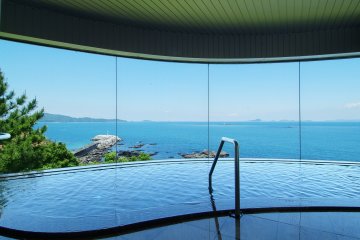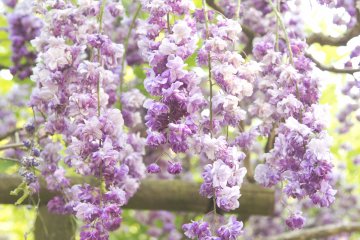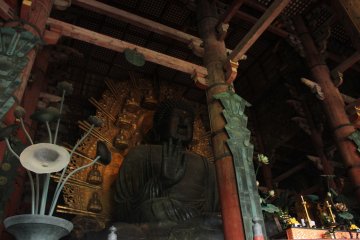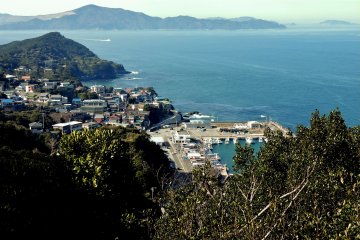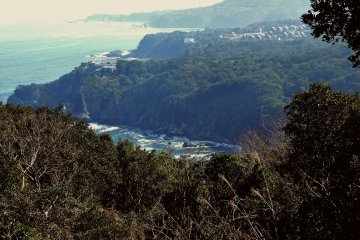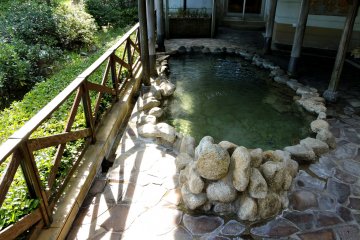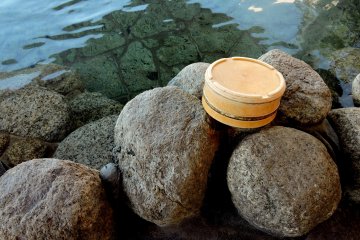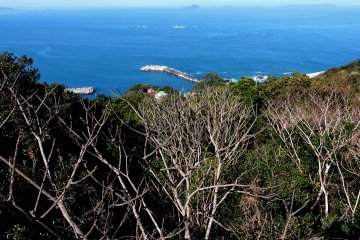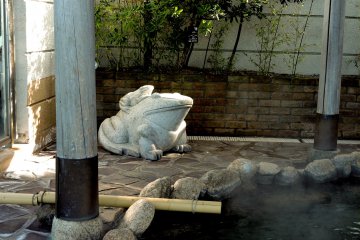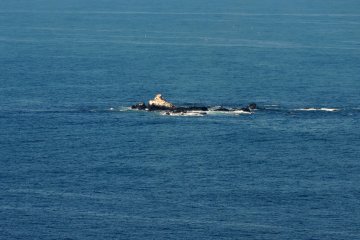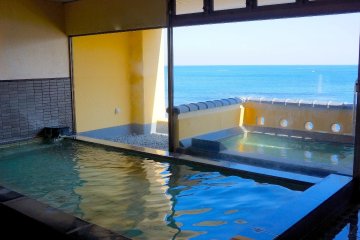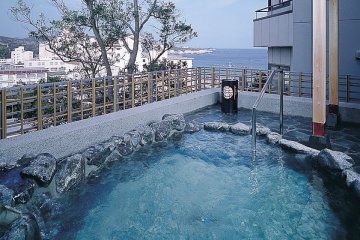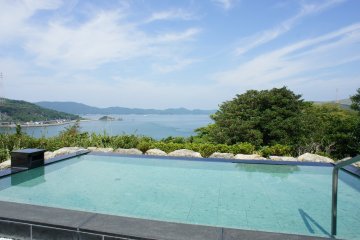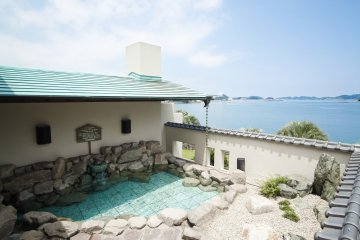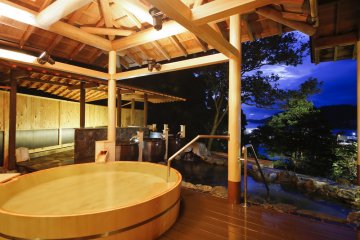Many Japanese consider the combination of seafood and onsen (hot springs) the best possible relaxing getaway. Toba has some fabulous onsen hotels – in fact, there are 57 such onsen hotels spread out across 9 areas along the Toba coastline. Typically they have great sea views, a choice of Japanese or Western rooms and, of course, no shortage of delicious seafood on the menu.
It is a custom in Shinto worship to purify your heart and mind with the water from the ocean, river or the onsen before visiting a shrine, and when visiting the Ise Shrine, purification is traditionally performed at the Futami Okitama Shrine. The shrine neighbors the famous Meoto Iwa, or the Married Couple Rocks. The Toba Onsen Association recommends staying at one of their onsen hotels after visiting the Futami Okitama Shrine, to relax in their onsen, and then make your trip to the Ise Shrine the next day. The Ise Shrine is around 20min by public transportation from the Toba onsen area.

Many of Toba's hotels are set on a hill top, providing the guest rooms and outdoor bathing areas with magnificent views of the hills, forest and the sea. In some hotels, they look out at Iragomisaki and Kamishima, the setting of Yukio Mishima’s novel “The Sound of the Waves.” In the winter months, if the weather is clear, Mt Ontake and Mt Fuji are visible in the distance. You can also look down to the sheltered bay where Godzilla first came ashore – happily there was no sign of monsters while I was there. At night you can relax in the baths and look up at the star constellations sprawled across the night sky. The Ijika Daiichi Hotel Kagura and Todaya Hotel are two of the hotels with magnificent views.

The onsen with superb views can be indoor or outdoor. Some hotels also have private baths and rooms with outdoor baths in the balcony. For those who don’t plan on staying overnight, some hotels offer their onsens to day trip visitors.
Each of the nine areas in the Toba coastline have different characteristics:
- Ohama: You can enjoy outdoor activities.
- Toshijima: It is the largest island on the Ise Bay. Making salted seaweed is one of the island’s seasonal tradition that happens from February - April. Toshijima is half an hour ferry ride from the port in front of Toba station.
- Toba: The central area of the Toba coastline where the Toba Aquarium and the Mikimoto Pearl Island are located. The Todaya hotel is also located in this area.
- Arashima: 10min drive from Toba station, the Arashima area is known for its great view of the islands and the entire bay from the top of the hill.
- Uramura: Area known for its oyster farming. Hundreds of rafts for oyster farming floating on the water surface is a worth-seeing sight!
- Ijika: The first Godzilla movie was filmed in this area. You can see Mt.Fuji from the top of the hill when the whether is clear. The Ijika Daiichi Hotel Kagura is located here.
- Kuzaki: Located on the most eastern part of the Toba, Ise and Shima region. It is a fishermen’s town that has been producing Noshi-awabi (abalone) as an offering to the Ise-Shrine for 2000 years.
- Osatsu: A town for ama divers and fishermen. You can visit the ama-diver hut and enjoy some delicious and fresh seafood meal.
- Adako: As its name suggests, octopus, or tako (dako), is the area’s specialty. Tako-meshi, which is rice cooked with octopus, is a popular dish in the area.
If you travel to Toba, Ise and Shima to visit Ise Shrine, Ama-diver hut, Oharai town, Toba Aquarium, Mikimoto Pearl Island, or anywhere in the area, be sure to relax in nice hot Toba hot springs.4




